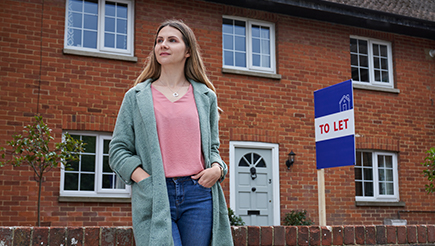Being a fantastic landlord is about more than getting along with your tenants. As well as customer satisfaction, it's also important to stay ahead of the curve.
Here are our tips on things you can do to be a better landlord.
Join a landlord association
Landlord association membership costs money, but it's a worthwhile investment; we've written about the benefits before. In addition to access to various useful resources, such as lawyer-approved templates, joining an industry body will give you a competitive edge and shows tenants that you meet professional standards.
Maintain high standards
Make sure that your properties comply with the basic safety requirements, for example:
- Appliances should be inspected once a year by a gas safety engineer, and a copy of the gas safety check record should be given to every tenant before they move in.
- There should be a smoke alarm on each floor, a carbon monoxide detector in every room with a working fireplace and, if the property is a House in Multiple Occupation (HMO), fire alarms and extinguishers should be provided.
Keep up to date
Joining a landlord association is the first step, but there are more ways to stay informed about new rules and regulations.
- Subscribe to trade publications such as UK Landlord Magazine and Property Investor News.
- Set up a Google alert for the word 'landlord' so that you hear about new rules and regulations as soon as they're announced.
- Follow different landlord associations on social media. They share lots of industry news with their followers, even if they aren't members.
- Attend conferences and trade shows. This is a good way to meet and network with other landlords, share information and learn about new innovations.
Keep good records
Great record keeping will ensure everything runs smoothly, and means you’re well prepared if you ever need to make a claim on your residential landlord insurance policy.
- Keep an extra copy of tenancy agreements and all correspondence. You might never need these, but they could be used as evidence if you ever have a dispute with your tenant.
- Rather than deducting 10% from taxable profits, landlords now need to provide itemised receipts as evidence of wear and tear costs incurred. Keep every receipt – even for the smallest purchases.
- Jot down important phone numbers like your tenant's mobile, your insurance company and your lawyer just in case anything happens to your phone.
- Hold onto the advert you used when you last rented out the property: there's no need to reinvent the wheel. If your tenants move out, you can tweak it rather than starting from scratch.
Communicate frequently
Arrange regular catch-ups with your tenants, and make it easy for them to contact you. Students may prefer communicating by social media or text message; older tenants may appreciate a phone call or face-to-face meeting. Frequent contact will allow any problems to be dealt with swiftly, but do set boundaries – such as no calls after a certain time.
Create an inventory
Furniture and other household contents you’ve provided should be listed and described in an inventory. Once this document is signed by you and your tenant, it will provide a quick resolution to any future disagreements over these items. That’s why it’s important to be specific in your inventory, including the age and condition of all the contents.
Keep the property well decorated
Make sure your property remains in good condition – if everything looks fine and is in working order, tenants will be less likely to complain. If you list the property as furnished, you’ll need to provide certain items (including a bed, curtains, a sofa, central heating and a fully equipped kitchen) and ensure any upholstered furniture meets fire safety standards.
Understand your rights
Demanding tenants are one thing, unreasonable tenants are another. If your tenant doesn’t pay the rent on time, damages your property and behaves antisocially, it’s important to understand your rights so you know what action to take:
- Rental payments: Your tenancy agreement should detail how much rent is due and when it should be paid.
- Evictions: If a tenant hasn’t paid the rent, and hasn’t agreed to a solution, then landlords are legally entitled to serve an eviction notice.
- Reclaiming costs: Accidental damage caused by the tenant, which the landlord pays for, can be claimed back under a residential landlords insurance policy. Anything specifically against the tenancy agreement, such as damage caused by banned pets, can be taken from a tenant’s deposit.
- Access: Bear in mind that landlords can’t enter a property whenever they like; they must have permission from the tenant and give at least 24 hours’ notice.
Make sure your tenants are happy
Going above and beyond for your tenants can result in longer tenancies and positive word of mouth. In a recent AXA survey*, we found that some landlords keep their tenants happy by responding to messages right away.
Others have gone a bit further, providing tenants with an essentials kit on move in day, carrying out repairs without having to be asked and minding the property while their tenants are away.
Why not tell your story of demanding tenants or unreasonable landlords, and tell us how you resolved the situation in the comments below.
*AXA survey of 1000 tenants living in Great Britain, conducted in July 2016






